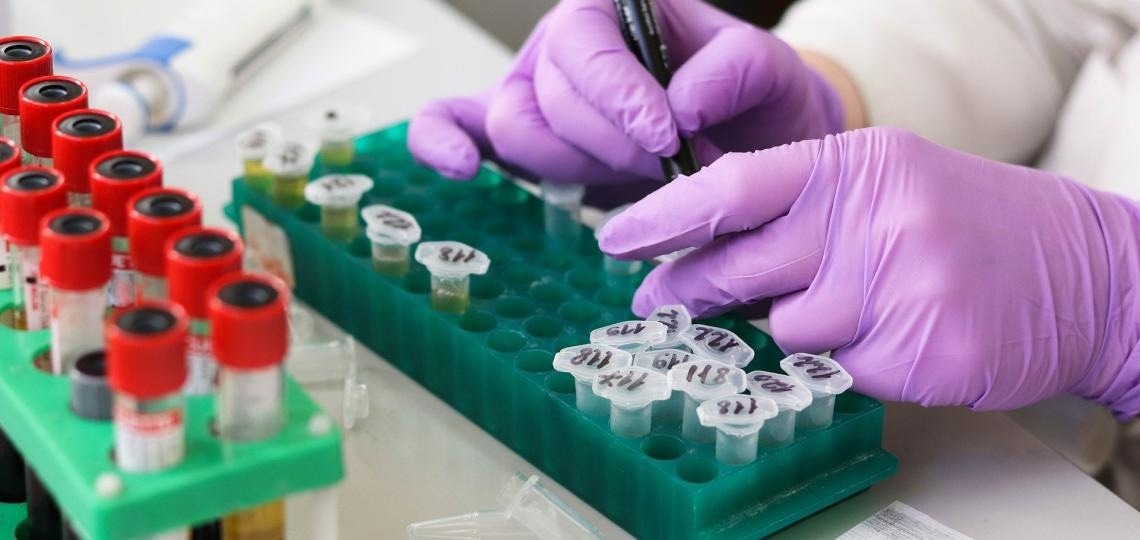The severity of immune-mediated intestinal diseases like graft-versus-host disease (GVHD) or inflammatory bowel disease is known to be associated with changes in the gut microbiome, but what causes such disruption in the microbial community is unknown.

Image Credit: Baylor College of Medicine
Investigators from Baylor College of Medicine, the University of Michigan, and other institutions working with GVHD animal models report today in the journal Immunity that changes in the gut microbiome are linked to an increase in intestine oxygen levels following immune-mediated intestinal damage. Minimizing intestinal oxygen levels pharmacologically mitigated the microbial imbalance and lowered the severity of the intestinal disease.
There is a lot of data showing that microbes change in many diseases, but we do not understand how that happens. This study is one of the first to provide an explanation and a potential solution for the imbalance in the gut microbiome that exacerbates GVHD and possibly other inflammatory intestinal conditions.”
Dr Pavan Reddy, Professor and Director, Dan L Duncan Comprehensive Cancer Center, Baylor College of Medicine
Dr Pavan Reddy was at the University of Michigan during the development of this project.
GVHD is a potentially fatal side effect of bone marrow transplantation.
It is the complication that can prevent us from using this therapy that has proven to be effective to treat many blood cancers and inherited blood diseases. The idea is to understand what makes GVHD worse so we can effectively control it. The study also is relevant to more common inflammatory bowel diseases, including Crohn’s disease and ulcerative colitis.”
Dr Pavan Reddy, Professor and Director, Dan L Duncan Comprehensive Cancer Center, Baylor College of Medicine
Reddy and his coworkers found that the damage caused by immune cells to intestinal cells hinders these cells from fully utilizing oxygen to perform their normal functions. As a result, all of the oxygen that is not being used by intestinal cells exudes into the intestine, modifying the environment for the microbes that live there.
Most of the ‘good microbes’ we have in the intestine grow in oxygen-poor environments—oxygen is toxic to them. They are called anaerobic (without oxygen) bacteria. When oxygen levels in the intestine increase, these microbes tend to disappear, and oxygen-loving microbes tend to grow. An increase in oxygen level provides an explanation for the microbiome changes in the context of these inflammatory diseases.”
Dr Pavan Reddy, Professor and Director, Dan L Duncan Comprehensive Cancer Center, Baylor College of Medicine
The findings indicate that restoring the normal environment in the intestine by lowering the oxygen level could help reinstate the balance of the microbial community and lead to GVHD attenuation.
Reddy adds, “Indeed, we discovered that reducing the intestinal oxygen level actually made a difference in the progression of GVHD in the animal models. We found that a commonly used drug to reduce iron overload, an iron chelator, mitigated the microbial imbalance and reduced the severity of GVHD.”
For several years, iron chelators have been used to treat a variety of conditions in which excess iron induces tissue damage, like hemochromatosis. Iron chelators are compounds that attach to iron and pull it out of the body.
“We discovered that iron chelators also can act as oxygen sinks. In our animal models, iron chelators removed iron from the intestine and that facilitated the restoration of an oxygen-poor environment that gave anaerobic bacteria an opportunity to bloom. Importantly, this reduced the severity of GVHD,” Reddy notes.
The next step for the researchers is to conduct studies to see if iron chelation can help regulate the intensity of GVHD in patients who have had bone marrow transplants.
Another benefit of iron chelation is that it may reduce or eliminate the need for immune suppressor medications, which are commonly used to control GVHD. Suppressing the immune system might very well control GVHD, but it also promotes infections, which can be fatal.
“If iron chelation helps control the condition in patients, it would be a novel non-immunosuppressive approach to treat GVHD with seemingly little side effects,” Reddy concluded.
Source:
Journal reference:
Seike, K., et al. (2023) Ambient oxygen levels regulate intestinal dysbiosis and GVHD severity after allogeneic stem cell transplantation. Immunity. doi.org/10.1016/j.immuni.2023.01.007.